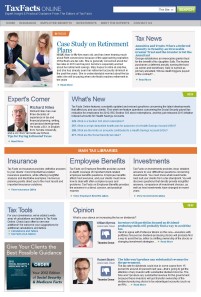In Tax Tip 2014-56, the IRS provided 9 tax facts that a taxpayer needs to know about late filing and late paying tax penalties after the deadline of April 15. By example, taxpayers should be made aware that the failure-to-file penalty is usually 10 times greater than the failure-to-pay penalty. So the IRS encourages taxpayers to file on time, even if they cannot pay on time.
1. If a taxpayer is due a federal tax refund then there is no penalty if the tax return is filed later than April 15. However, if a taxpayer owes taxes and fails to file the tax return by April 15 or fails to pay any tax due by April 15, then the taxpayer will probably owe interest and penalties on the tax still after April 15.
2. Two federal penalties may apply. The first is a failure-to-file penalty for late filing. The second is a failure-to-pay penalty for paying late.
3. The failure-to-file penalty is usually much more than the failure-to-pay penalty. In most cases, it is 10 times more!!! So if a taxpayer cannot pay what is owe by April 15, the taxpayer should still file a tax return on time and pay as much as possible to reduce the balance.
4. The failure-to-file penalty is normally 5% of the unpaid taxes for each month or part of a month that a tax return is late. It will not exceed 25% of the unpaid taxes.
5. If a taxpayer files a return more than 60 days after the due date (or extended due date), the minimum penalty for late filing is the smaller of $135 or 100% of the unpaid tax.
6. The failure-to-pay penalty is generally 0.5% per month of your unpaid taxes. It applies for each month or part of a month your taxes remain unpaid and starts accruing the day after taxes are due. It can build up to as much as 25% of the unpaid taxes.
7. If the 5% failure-to-file penalty and the 0.5% failure-to-pay penalty both apply in any month, the maximum penalty amount charged for that month is 5%.
8. If a taxpayer requested the 6-month extension of time to file the income tax return (until October 15) by the tax due date of April 15 and paid at least 90% of the taxes that are owed, then the taxpayer may not face a failure-to-pay penalty. However, the taxpayer must pay the remaining balance by the extended due date. The taxpayer will still owe interest on any taxes paid after the April 15 due date.
9. A taxpayer may avoid a failure-to-file or failure-to-pay penalty if able to show reasonable cause for not filing or paying on time.
Because of the constant changes to the tax law, taxpayers are currently facing many questions connected to important issues such as healthcare, home office use, capital gains, investments, and whether an individual is considered an employee or a contractor. Financial advisors are continually looking for updated tax information that can help them provide the right answers to the right people at the right time. For over 110 years, National Underwriter has provided fast, clear, and authoritative answers to financial advisors pressing questions, and it does so in the convenient, timesaving, Q&A format.
“Our brand-new Tax Facts title is exciting in many ways,” says Rick Kravitz, Vice President & Managing Director of Summit Professional Network’s Professional Publishing Division. “First of all, it fills a huge gap in the resources available to today’s advisors. Small business is a big market, and this book enables advisors to get up-and-running right away, with proven guidance that will help them serve their clients’ needs. Secondly, it addresses the biggest questions facing all taxpayers and provides absolutely reliable answers that help advisors solve today’s biggest problems with confidence.”
“Robert Bloink, Esq., LL.M., and William H. Byrnes, Esq., LL.M., CWM®—are delivering real-life guidance based on decades of experience. The authors’ knowledge and experience in tax law and practice provides the expert guidance for National Underwriter to once again deliver a valuable resource for the financial advising community,” added Rick Kravitz.
Anyone interested can try Tax Facts on Individuals & Small Business, risk-free for 30 days, with a 100% guarantee of complete satisfaction. For more information, please go to www.nationalunderwriter.com/TaxFactsIndividuals or call 1-800-543-0874.
If you are interested in discussing the Master or Doctoral degree in the areas of financial services or international taxation, please contact me: profbyrnes@gmail.com to Google Hangout or Skype that I may take you on an “online tour”


No comments:
Post a Comment